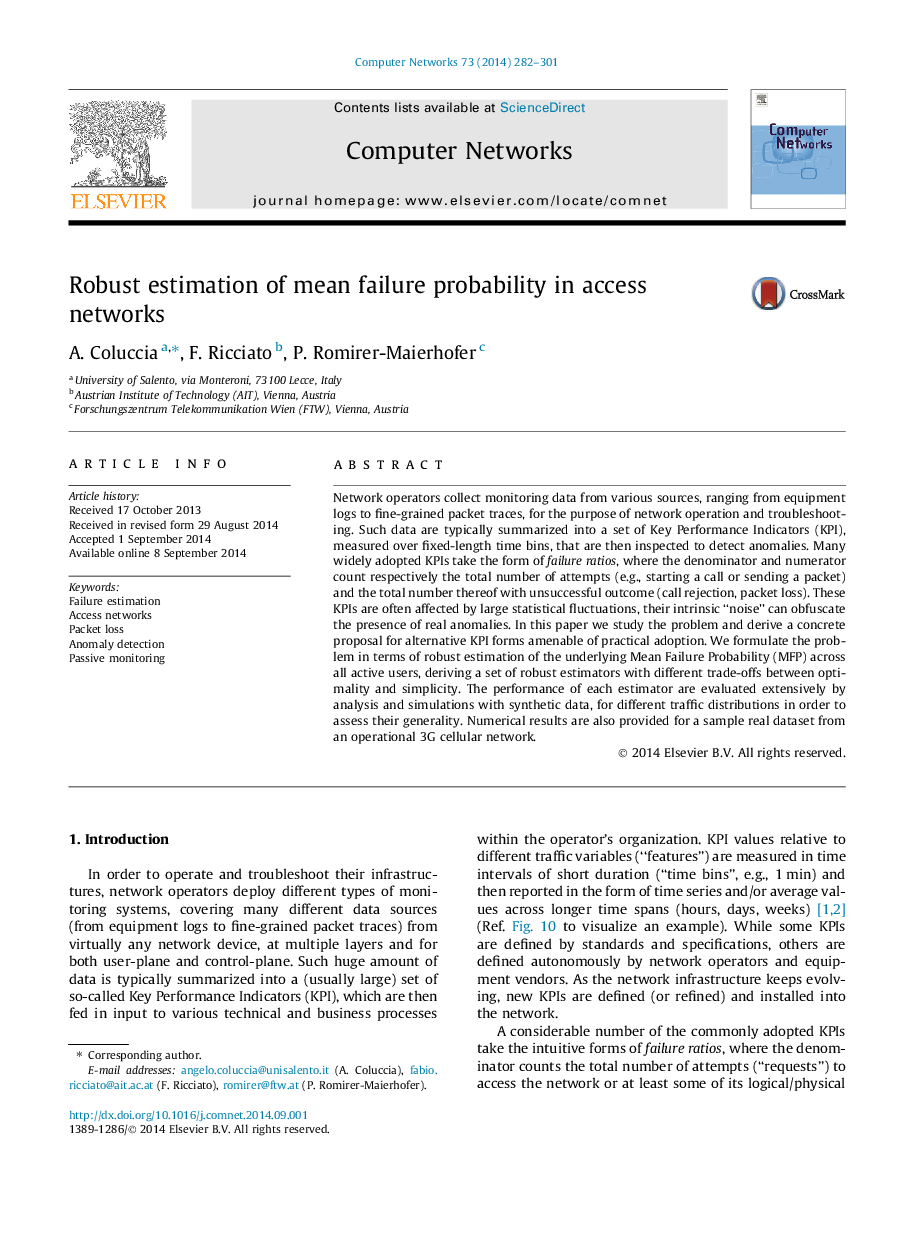| Article ID | Journal | Published Year | Pages | File Type |
|---|---|---|---|---|
| 452895 | Computer Networks | 2014 | 20 Pages |
Network operators collect monitoring data from various sources, ranging from equipment logs to fine-grained packet traces, for the purpose of network operation and troubleshooting. Such data are typically summarized into a set of Key Performance Indicators (KPI), measured over fixed-length time bins, that are then inspected to detect anomalies. Many widely adopted KPIs take the form of failure ratios, where the denominator and numerator count respectively the total number of attempts (e.g., starting a call or sending a packet) and the total number thereof with unsuccessful outcome (call rejection, packet loss). These KPIs are often affected by large statistical fluctuations, their intrinsic “noise” can obfuscate the presence of real anomalies. In this paper we study the problem and derive a concrete proposal for alternative KPI forms amenable of practical adoption. We formulate the problem in terms of robust estimation of the underlying Mean Failure Probability (MFP) across all active users, deriving a set of robust estimators with different trade-offs between optimality and simplicity. The performance of each estimator are evaluated extensively by analysis and simulations with synthetic data, for different traffic distributions in order to assess their generality. Numerical results are also provided for a sample real dataset from an operational 3G cellular network.
